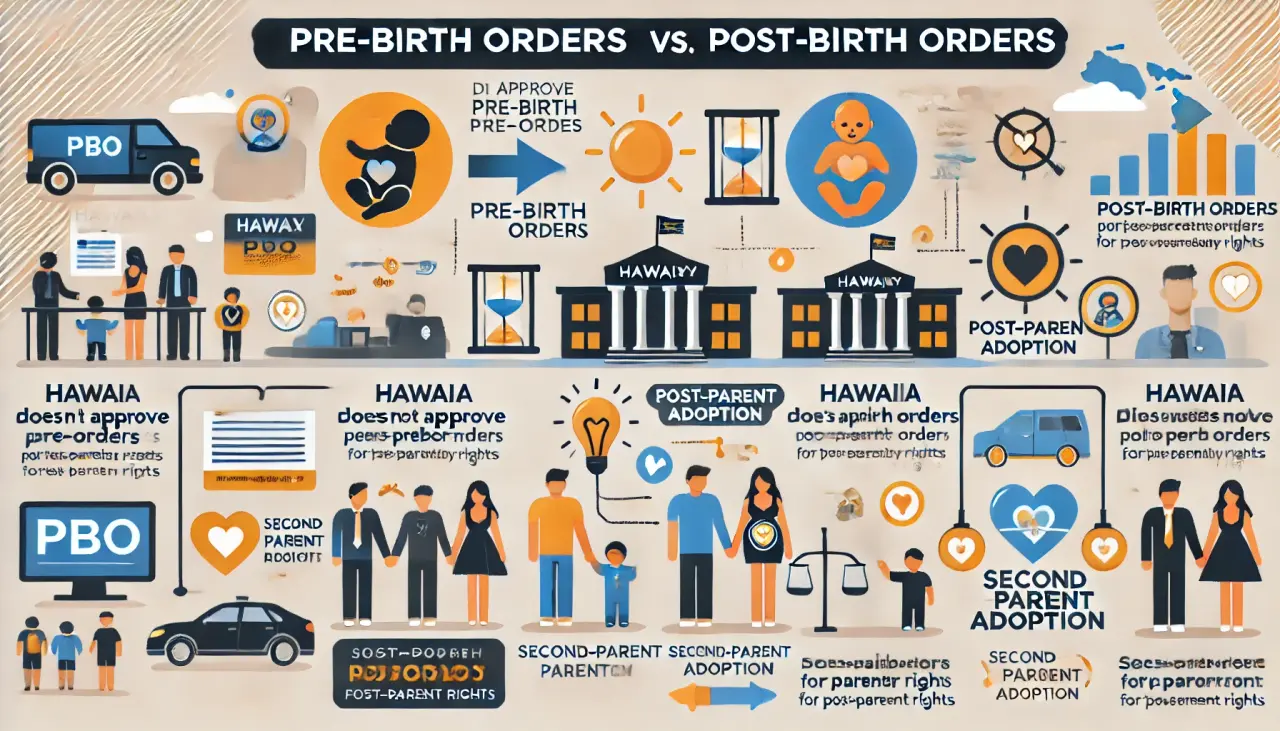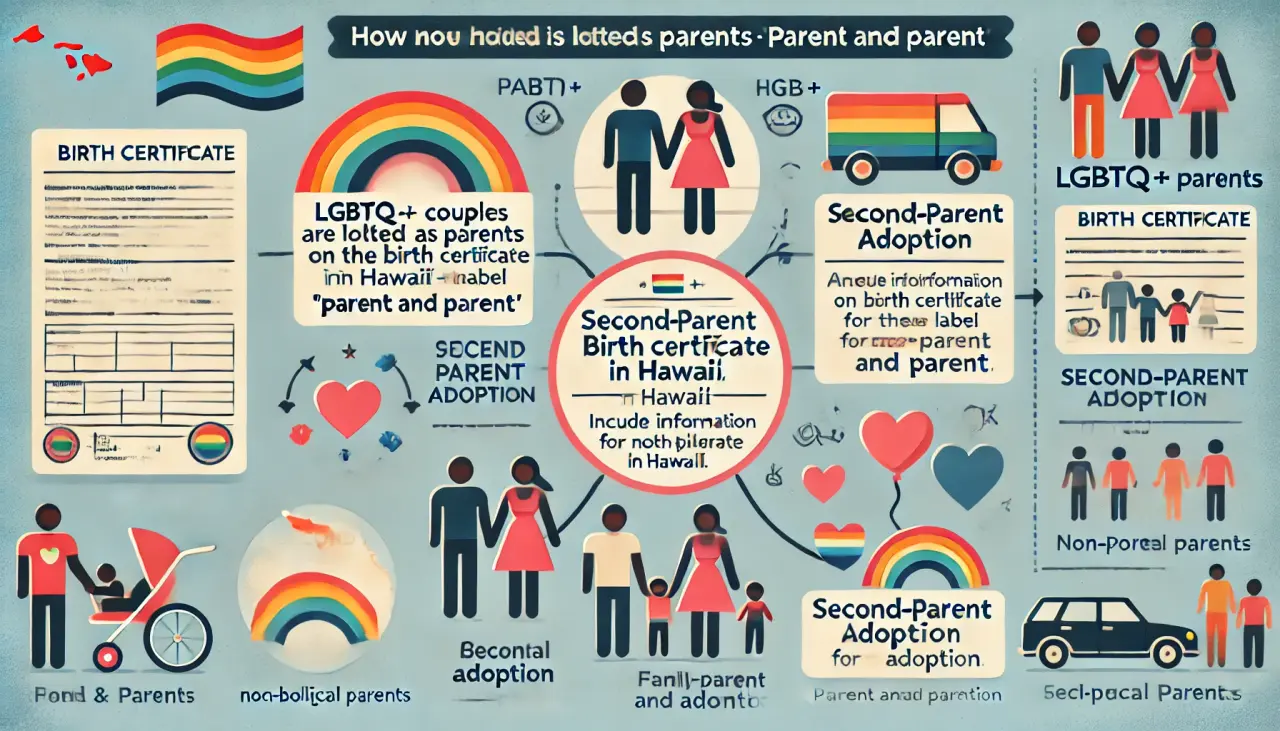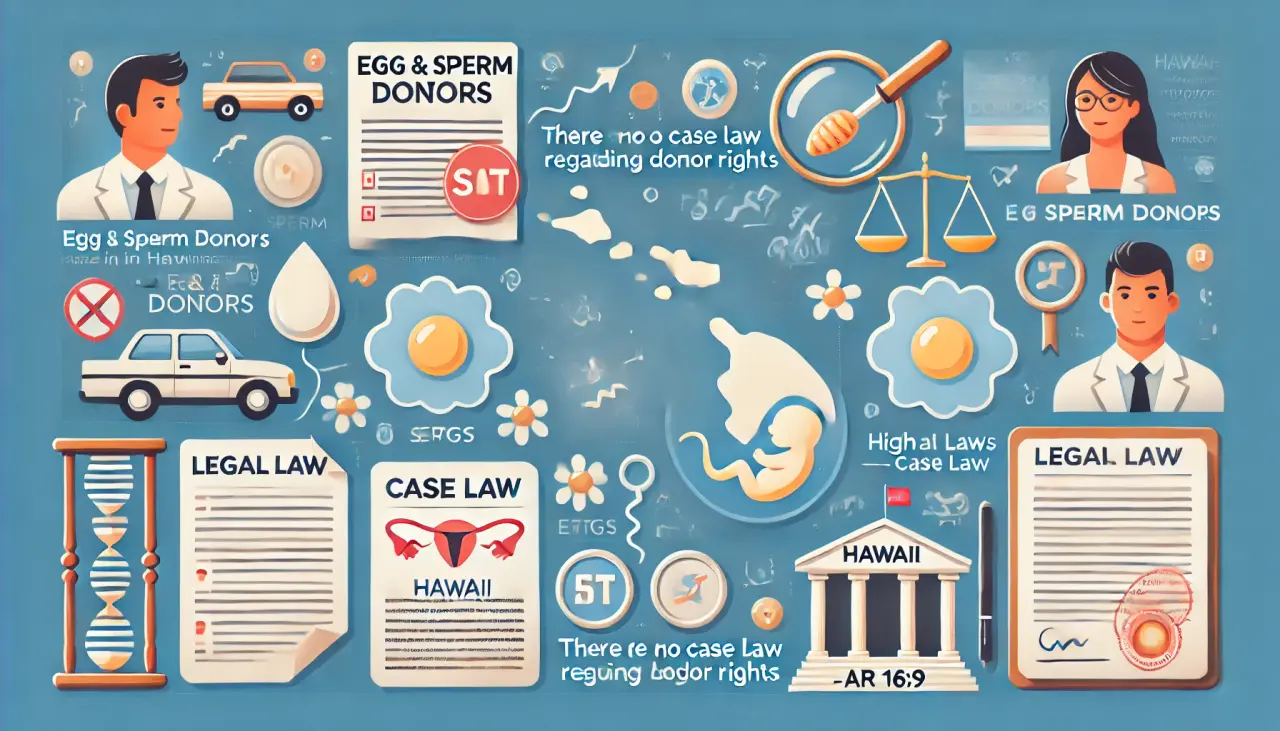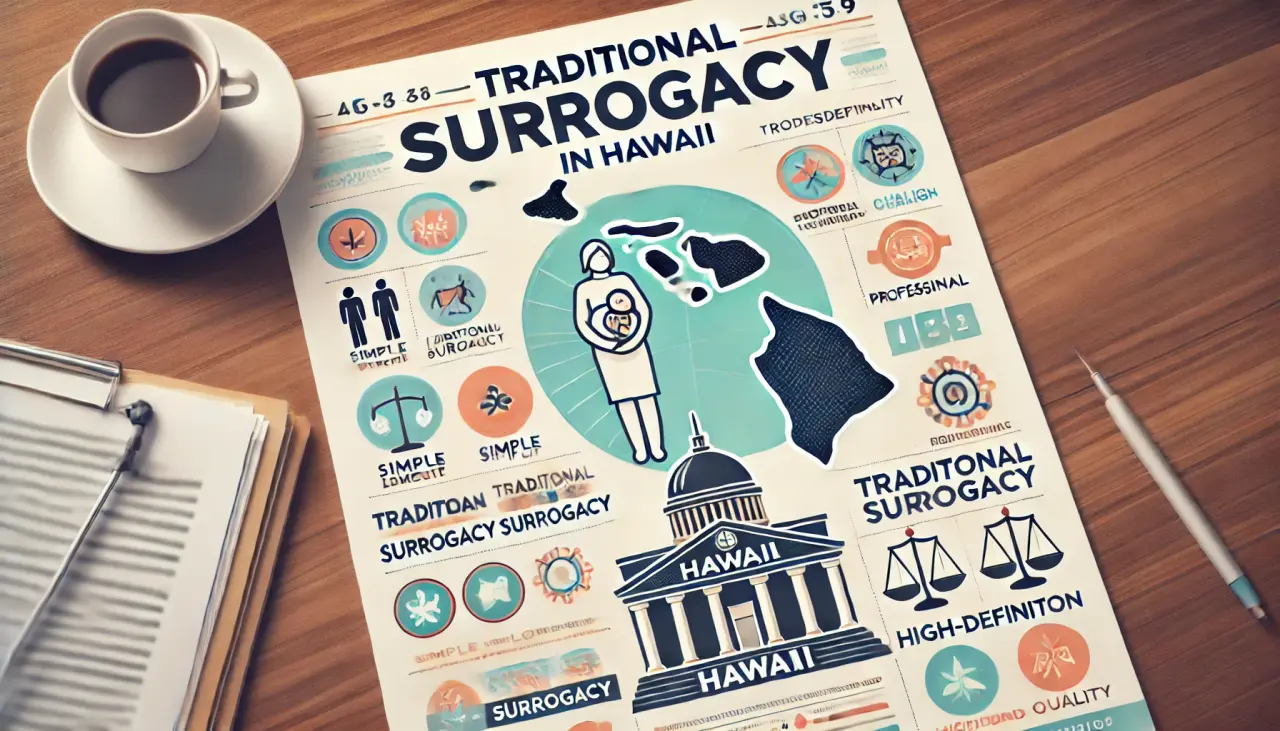
Surrogacy Laws in Hawaii: Legal Guidelines for LGBTQ+ Couples & Parental Rights
Gestational surrogacy (where the surrogate carries a pregnancy for intended parents, using their egg and sperm) is legal in Hawaii, as there are no laws or published case law prohibiting it.
1. Pre-Birth Parental Rights in Hawaii
Does Hawaii approve Pre-Birth Orders (PBO)?
No, Hawaii does not issue Pre-Birth Orders. Instead, the state approves Post-Birth Orders after the child is born.
Can both parents be declared the legal parents in a Post-Birth Order if at least one of them has a genetic relationship to the child?
The answer depends on the circumstances:
- Married heterosexual couples using their own egg and sperm: Yes, both parents can be declared the legal parents.
- Married heterosexual couples using donor eggs or sperm: No, only the biological parents are granted parental rights. To gain legal parentage, the non-biological parent must first complete a stepparent adoption in Hawaii or their home state.
- Unmarried heterosexual couples using their own egg and sperm: Yes, both parents can be declared the legal parents.
- Unmarried heterosexual couples using donor eggs or sperm: No, similar to married couples, a second-parent adoption must be performed in Hawaii or another jurisdiction.
- Same-sex couples using donor eggs or sperm: No, again, only the biological parent is initially granted parental rights, and a second-parent adoption is required.
- Single individuals using their own egg or sperm: Yes, the single parent can be granted full legal parental rights.
What if neither parent is genetically related to the child?
In this case, no parent (whether married or unmarried, heterosexual or same-sex) can be declared the legal parent on the birth certificate based solely on the surrogacy arrangement. A second-parent adoption will be required for the non-biological parent.
Do parental rights decisions differ depending on where in Hawaii the case is filed?
No, the outcome of a Post-Birth Order will be the same throughout Hawaii, but second-parent adoption outcomes may vary based on the location.
Is a hearing required for a Post-Birth Order in Hawaii?
Yes, a hearing is required. The judge will determine who needs to be present. If the intended parents used their own egg and sperm, typically only the surrogate mother (and her husband, if applicable) will need to attend the hearing. If donor eggs or sperm were used, the intended parents may also need to appear.
Does Hawaii’s newborn registry recognize Pre-Birth Orders from other states?
This is uncertain, but it may be possible for Hawaii to recognize them.
How long does it take to obtain a birth certificate in Hawaii after the surrogate delivers?
Generally, it takes about 6 to 12 weeks, but the process can be expedited in some cases.

2. Surrogacy for LGBTQ+ Couples in Hawaii
How are LGBTQ+ parents listed on the final birth certificate?
They are typically listed as “Parent and Parent”.
Can gay male couples from outside the U.S. obtain an initial birth certificate listing both the father and the surrogate mother?
It is possible but not guaranteed.
Can they later obtain a birth certificate listing one or two fathers without mentioning the surrogate mother?
Yes, this is possible.
Can a non-biological father in an LGBTQ+ couple obtain second-parent adoption rights just because the child is born in Hawaii (even if the parents do not live in Hawaii)?
It is possible. Some judges may approve the second-parent adoption in this case.
If second-parent adoption is not granted, will Hawaii’s newborn registry recognize second-parent adoption orders from other states and add the second parent to the birth certificate?
If the couple is married or in a common law marriage, this is likely to be recognized.

3. Egg and Sperm Donation in Surrogacy
Are there laws or case law in Hawaii regarding the rights of donors over the eggs, sperm, embryos, or children?
No, there are no laws or case law in Hawaii regarding the rights of donors.
4. Second-Parent and Stepparent Adoption in Hawaii
This typically applies to cases where the child is born outside Hawaii, and the parents return to Hawaii to complete the adoption process.
Will Hawaii courts approve second-parent or stepparent adoption for heterosexual couples residing in Hawaii?
This may be approved, depending on the judge.
Do the parents need to be married for second-parent or stepparent adoption approval?
Marriage is not necessarily required, as it depends on the judge’s discretion.
Will Hawaii courts approve second-parent or stepparent adoption for same-sex couples residing in Hawaii?
Again, this may be approved, depending on the judge.
Do the same-sex parents need to be married?
No, marriage is not required for second-parent or stepparent adoption in this case.

5. Traditional Surrogacy in Hawaii
The legality of traditional surrogacy (where the surrogate is also the biological mother) in Hawaii is unclear.
Conclusion
Hawaii has clear guidelines for gestational surrogacy and parental rights, but the laws surrounding traditional surrogacy, second-parent adoption, and LGBTQ+ surrogacy arrangements can vary. It is crucial for intended parents and surrogates to work with legal professionals to ensure they fully understand their rights and responsibilities.